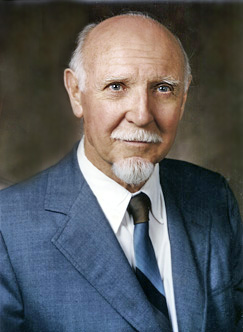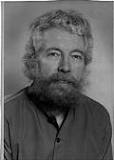Educational psychology is the branch of psychology concerned with the scientific study of human learning. The study of learning processes, from both cognitive and behavioral perspectives, allows researchers to understand individual differences in intelligence, cognitive development, affect, motivation, self-regulation, and self-concept, as well as their role in learning. The field of educational psychology relies heavily on quantitative methods, including testing and measurement, to enhance educational activities related to instructional design, classroom management, and assessment, which serve to facilitate learning processes in various educational settings across the lifespan.
Psychology is the scientific study of mind and behavior. Its subject matter includes the behavior of humans and nonhumans, both conscious and unconscious phenomena, and mental processes such as thoughts, feelings, and motives. Psychology is an academic discipline of immense scope, crossing the boundaries between the natural and social sciences. Biological psychologists seek an understanding of the emergent properties of brains, linking the discipline to neuroscience. As social scientists, psychologists aim to understand the behavior of individuals and groups.

Cognitive neuroscience is the scientific field that is concerned with the study of the biological processes and aspects that underlie cognition, with a specific focus on the neural connections in the brain which are involved in mental processes. It addresses the questions of how cognitive activities are affected or controlled by neural circuits in the brain. Cognitive neuroscience is a branch of both neuroscience and psychology, overlapping with disciplines such as behavioral neuroscience, cognitive psychology, physiological psychology and affective neuroscience. Cognitive neuroscience relies upon theories in cognitive science coupled with evidence from neurobiology, and computational modeling.

Cognition is the "mental action or process of acquiring knowledge and understanding through thought, experience, and the senses". It encompasses all aspects of intellectual functions and processes such as: perception, attention, thought, imagination, intelligence, the formation of knowledge, memory and working memory, judgment and evaluation, reasoning and computation, problem-solving and decision-making, comprehension and production of language. Cognitive processes use existing knowledge to discover new knowledge.

Creativity is the ability to form novel and valuable ideas or works using one's imagination. Products of creativity may be intangible, a physical object. Creativity may also describe the ability to find new solutions to problems, or new methods of performing a task or reaching a goal. Therefore, creativity enables people to solve problems in new or innovative ways.
In psychology, cognitivism is a theoretical framework for understanding the mind that gained credence in the 1950s. The movement was a response to behaviorism, which cognitivists said neglected to explain cognition. Cognitive psychology derived its name from the Latin cognoscere, referring to knowing and information, thus cognitive psychology is an information-processing psychology derived in part from earlier traditions of the investigation of thought and problem solving.

Robert J. Sternberg is an American psychologist and psychometrician. He is a Professor of Human Development at Cornell University.
Learning styles refer to a range of theories that aim to account for differences in individuals' learning. Although there is ample evidence that individuals express personal preferences on how they prefer to receive information, few studies have found validity in using learning styles in education. Many theories share the proposition that humans can be classified according to their "style" of learning, but differ on how the proposed styles should be defined, categorized and assessed. A common concept is that individuals differ in how they learn.
Diane F. Halpern is an American psychologist and former president of the American Psychological Association (APA). She is Dean of Social Science at the Minerva Schools at KGI and also the McElwee Family Professor of Psychology at Claremont McKenna College. She is also a former president of the Western Psychological Association, The Society for the Teaching of Psychology, and the Division of General Psychology.
Dysrationalia is defined as the inability to think and behave rationally despite adequate intelligence. It is a concept in educational psychology and is not a clinical disorder such as a thought disorder. Dysrationalia can be a resource to help explain why smart people fall for Ponzi schemes and other fraudulent encounters.

The Cattell–Horn–Carroll theory, is a psychological theory on the structure of human cognitive abilities. Based on the work of three psychologists, Raymond B. Cattell, John L. Horn and John B. Carroll, the Cattell–Horn–Carroll theory is regarded as an important theory in the study of human intelligence. Based on a large body of research, spanning over 70 years, Carroll's Three Stratum theory was developed using the psychometric approach, the objective measurement of individual differences in abilities, and the application of factor analysis, a statistical technique which uncovers relationships between variables and the underlying structure of concepts such as 'intelligence'. The psychometric approach has consistently facilitated the development of reliable and valid measurement tools and continues to dominate the field of intelligence research.
Domain-general learning theories of development suggest that humans are born with mechanisms in the brain that exist to support and guide learning on a broad level, regardless of the type of information being learned. Domain-general learning theories also recognize that although learning different types of new information may be processed in the same way and in the same areas of the brain, different domains also function interdependently. Because these generalized domains work together, skills developed from one learned activity may translate into benefits with skills not yet learned. Another facet of domain-general learning theories is that knowledge within domains is cumulative, and builds under these domains over time to contribute to our greater knowledge structure. Psychologists whose theories align with domain-general framework include developmental psychologist Jean Piaget, who theorized that people develop a global knowledge structure which contains cohesive, whole knowledge internalized from experience, and psychologist Charles Spearman, whose work led to a theory on the existence of a single factor accounting for all general cognitive ability.

John Leonard Horn was a scholar, cognitive psychologist and a pioneer in developing theories of intelligence. The Cattell-Horn- Carroll (CHC) theory is the basis for many modern IQ tests. Horn's parallel analysis, a method for determining the number of factors to keep in an exploratory factor analysis, is also named after him.
Allan M. Collins is an American cognitive scientist, Professor Emeritus of Learning Sciences at Northwestern University's School of Education and Social Policy. His research is recognized as having broad impact on the fields of cognitive psychology, artificial intelligence, and education.
The Planning, Attention-Arousal, Simultaneous and Successive (P.A.S.S.) theory of intelligence, first proposed in 1975 by Das, Kirby and Jarman (1975), and later elaborated by Das, Naglieri & Kirby (1994) and Das, Kar & Parrilla (1996), challenges g-theory, on the grounds that the brain is made up of interdependent but separate functional systems. Neuroimaging studies and clinical studies of individuals with brain lesions make it clear that the brain is modularized; for example, damage to a particular area of the left temporal lobe will impair spoken and written language's production. Damage to an adjacent area will have the opposite impact, preserving the individual's ability to produce but not understand speech and text.
Computational psychometrics is an interdisciplinary field fusing theory-based psychometrics, learning and cognitive sciences, and data-driven AI-based computational models as applied to large-scale/high-dimensional learning, assessment, biometric, or psychological data. Computational psychometrics is frequently concerned with providing actionable and meaningful feedback to individuals based on measurement and analysis of individual differences as they pertain to specific areas of enquiry.
Lance Jeffrey Rips is an American psychologist and professor in the Department of Psychology at Northwestern University. Before joining Northwestern in 1994, he taught at the University of Chicago for nineteen years. His research has focused on human memory and deductive reasoning, among other topics. He received a Fulbright Fellowship in 2004 and 2005, and he was a Guggenheim Fellow in 2008. In addition, he is a fellow of the Cognitive Science Society, American Psychological Association, the Association for Psychological Science, and the Society of Experimental Psychologists.

Susan Alice Nolan is an American clinical psychologist who studies critical thinking in the classroom, assessment in higher education, mental health, and gender disparities in STEM fields. Nolan is a professor of psychology at Seton Hall University.
Jacqueline P. Leighton is a Canadian-Chilean educational psychologist, academic and author. She is a full professor in the Faculty of Education as well as vice-dean of Faculty Development and Faculty Affairs at the University of Alberta.
Gale M. Sinatra is an American educational psychologist known for her leadership and research on climate science education, education psychology, and enhancing the public's interest of science. She was instrumental in developing the conceptual change learning model. Sinatra is a distinguished professor of Psychology and the Stephen H. Crocker Chair of Education at the University of Southern California (USC). She is the Chair of the American Psychological Association (APA) Climate Change Task Force and previously served as the President and Editor of APA's Division 15 journal, Educational Psychology. In 2022, Sinatra was awarded the Membership in the National Academy of Education, an award for researchers who have advanced policy and practice in their research.






